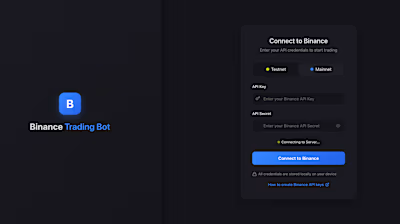CaseLaw AI: Advanced Legal Research Platform Development

CaseLaw AI: Advanced Legal Research Platform
🚨 MASSIVE DATASET WARNING 🚨
This is NOT a typical web application. The data requirements are ENORMOUS:
Component Size Description Raw Dataset 81GB 1,000 parquet files from Hugging Face Vector Storage ~50GB Qdrant database with 30M+ embeddings SQLite Index 6.3GB Metadata and case classification database Total Disk Space ~150GB Minimum required for full dataset RAM Required 64-128GB 64GB minimum, 128GB+ recommended Processing Time 48-72 hours On modern multi-core hardware
DO NOT attempt to run this project without proper infrastructure!
Overview
CaseLaw AI is a sophisticated legal research platform that combines semantic search, vector databases, and AI-powered analysis to help legal professionals navigate through millions of court cases efficiently. Built with a modern tech stack including React, TypeScript, and Python, it provides an intuitive interface for searching, analyzing, and managing legal documents.
Features
Semantic Search: AI-powered search using OpenAI embeddings for contextual understanding
Advanced Filtering: Filter by jurisdiction, court level, date ranges, and case types
Real-time Results: Fast search results with relevance scoring
Case Management: Save cases, add notes, and track research history
Dark Mode: Full theme support for comfortable reading
Responsive Design: Works seamlessly on desktop and mobile devices
PDF Export: Generate formatted PDFs of case documents
Research Notes: Create and manage notes linked to specific cases
Screenshots
Home Page
Search Interface
Case Details
Filtering Options
User Features
Help System
Dataset
CaseLaw AI utilizes the comprehensive Caselaw Access Project dataset, containing:
6.8 million legal cases spanning from 1662-2020
30+ million vector embeddings for semantic search
58 jurisdictions across the United States
3,064 unique courts
6.3GB SQLite index for efficient metadata retrieval
45GB+ Qdrant vector database for similarity search
Each case includes:
Full text of the court decision
Metadata (court, date, jurisdiction, citations)
Case type classification (Criminal, Civil, Administrative, Constitutional, Disciplinary)
Tech Stack
Frontend
React 18 with TypeScript
Vite for fast development and building
TanStack Query for data fetching and caching
Tailwind CSS with shadcn/ui components
React Router for navigation
Lucide Icons for consistent iconography
Backend
FastAPI for high-performance Python API
Qdrant vector database for semantic search
SQLite for metadata and full-text search
OpenAI for embeddings generation
PyPDF2 for PDF processing
Pydantic for data validation
Data Pipeline Architecture
System Architecture
Case Types Supported
Criminal: Cases involving violations of criminal law and prosecution by the state
Civil: Disputes between private parties including torts, contracts, and property disputes
Administrative: Cases involving government agencies and regulatory matters
Constitutional: Cases interpreting constitutional provisions and rights
Disciplinary: Cases involving professional misconduct and disciplinary proceedings
Prerequisites
Node.js 18.x or higher
Python 3.9 or higher
Docker and Docker Compose
Minimum 64GB RAM (recommended 128GB for production)
500GB+ SSD storage for databases
NVIDIA GPU (optional, for faster embeddings)
Installation
1. Clone the Repository
2. Set up the Qdrant Vector Database
Run with:
3. Backend Setup
4. Frontend Setup
5. Environment Configuration
Create
.env files in both frontend and backend directories:Backend
.env:Frontend
.env:Data Ingestion
Processing Pipeline
The data ingestion pipeline handles millions of legal documents. Warning: This process takes 48-72 hours and requires ~150GB of disk space!
Key Processing Scripts
parallel_processor.pyDownloads and processes the entire dataset from Hugging Face:
Downloads 1,000 parquet files in parallel
Generates embeddings using OpenAI's text-embedding-3-small
Handles token limits and memory optimization
Saves embeddings as pickle files for later upload
Runtime: 48-72 hours on high-end hardware
create_sqlite_index.pyCreates the SQLite metadata database:
Processes all parquet files to extract metadata
Classifies cases into types (Criminal, Civil, etc.)
Creates optimized indexes for fast filtering
Output: 6.3GB SQLite database
upload_vectors.pyUploads processed embeddings to Qdrant:
Reads pickle files from
parallel_processor.pyUploads in batches to avoid overwhelming Qdrant
Handles retry logic and error recovery
Runtime: 2-4 hours depending on hardware
Data Volume Considerations
Raw Data: ~500GB of court documents (81GB compressed)
Processed Data: ~100GB of parquet files
Vector Database: ~45GB in Qdrant
SQLite Database: ~10GB of metadata
Processing Time: 48-72 hours on modern hardware
Usage
Starting the Application
Start the backend:
Start the frontend:
Access the application at
http://localhost:5173API Endpoints
POST /api/v1/search - Semantic search with filtersGET /api/v1/cases/{case_id} - Retrieve specific caseGET /api/v1/filters - Get available filter optionsPOST /api/v1/export/pdf - Generate PDF exportSearch Query Examples
Performance Optimization
Vector Search Optimization
HNSW Index: Configured with
m=16, ef_construction=100Quantization: Scalar quantization reduces memory by 75%
Batch Processing: Process queries in batches of 100
Caching: Redis cache for frequent queries
Database Optimization
SQLite: Full-text search indexes on case_name, summary
Partitioning: Date-based partitioning for faster queries
Connection Pooling: Max 50 concurrent connections
Development
Running Tests
Code Style
Backend: Black formatter, flake8 linting
Frontend: ESLint with Prettier
Contributing
Fork the repository
Create a feature branch
Commit your changes
Push to the branch
Create a Pull Request
Deployment
Production Considerations
Use dedicated Qdrant cluster or Qdrant Cloud
PostgreSQL instead of SQLite for better concurrency
Redis for caching layer
CDN for static assets
Load balancer for API servers
Docker Deployment
Troubleshooting
Common Issues
Out of Memory: Increase Docker memory limits
Slow Searches: Check Qdrant index configuration
Missing Cases: Verify data pipeline completion
API Timeouts: Adjust FastAPI timeout settings
Debug Mode
Enable debug logging:
Dataset Limitations
Time Range: Cases from 1662-2020
Jurisdictions: 58 jurisdictions (federal and state)
Completeness: Some jurisdictions have more comprehensive coverage than others
Processing: Some cases may have OCR artifacts or formatting inconsistencies
Quick Start Options
Option A: Use Pre-built Data (Recommended)
If you want to avoid the 48-72 hour processing time, contact the repository owner for:
Pre-populated Qdrant backup (~50GB)
SQLite database file (
case_lookup.db - 6.3GB)Instructions for data restoration
Option B: Build From Scratch
Follow the Data Ingestion section above. Ensure you have:
150GB+ free disk space
64GB+ RAM
Stable internet connection
48-72 hours for processing
License
This project is licensed under the MIT License - see the LICENSE file for details.
Acknowledgments
OpenAI for embeddings API
Qdrant team for vector database
shadcn/ui for component library
Caselaw Access Project for the dataset
All contributors and legal data providers
⚠️ CRITICAL WARNING: This application requires MASSIVE computational resources. The full dataset includes over 6.8 million legal cases, generating 30+ million vector embeddings. Ensure your infrastructure can handle:
Minimum 64GB RAM (128GB recommended)
500GB+ fast SSD storage
Modern multi-core CPU (16+ cores recommended)
Stable internet for API calls
Sufficient OpenAI API credits for embeddings
This is NOT a typical web application - it's a data-intensive platform designed for serious legal research. DO NOT attempt to run this without proper infrastructure!
Disclaimer
This project is a technical demonstration of semantic search capabilities using publicly available legal data from the Caselaw Access Project. It was developed as part of a consulting project with the client's encouragement to make legal research tools more accessible. No proprietary client data or confidential information is included in this repository.
Like this project
Posted May 25, 2025
Developed CaseLaw AI, a legal research platform with AI and semantic search.
Likes
1
Views
2






